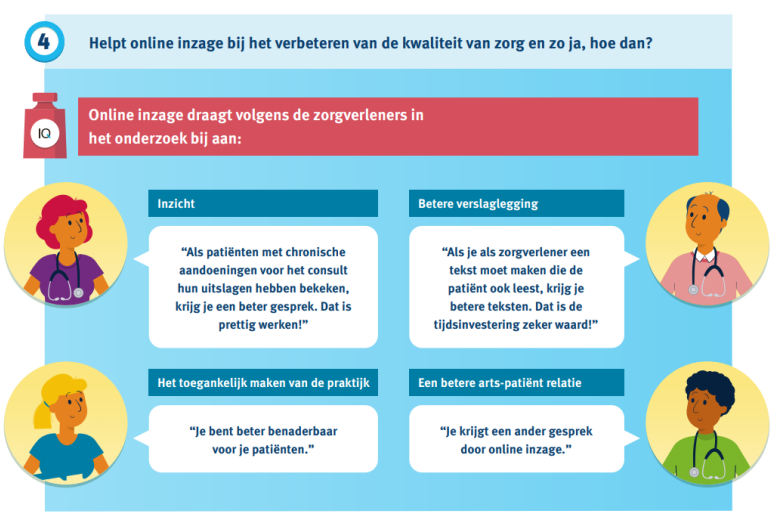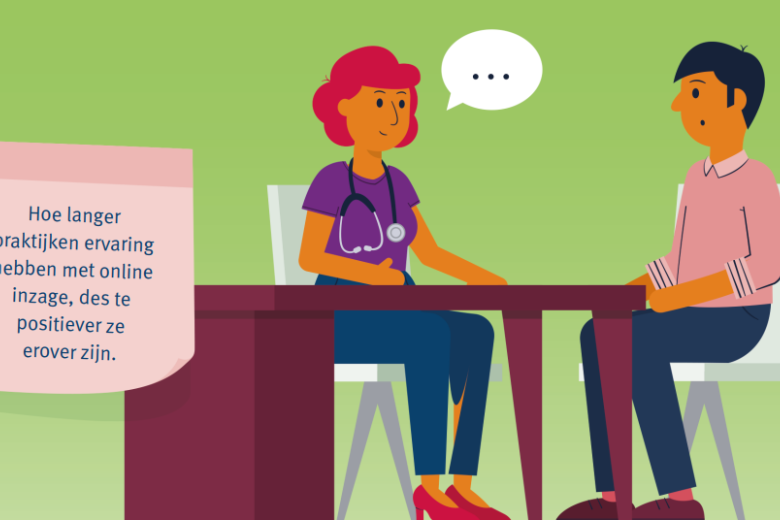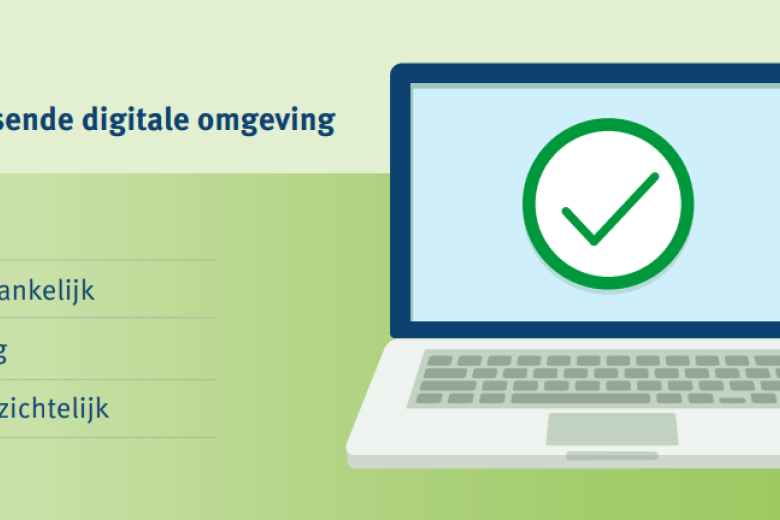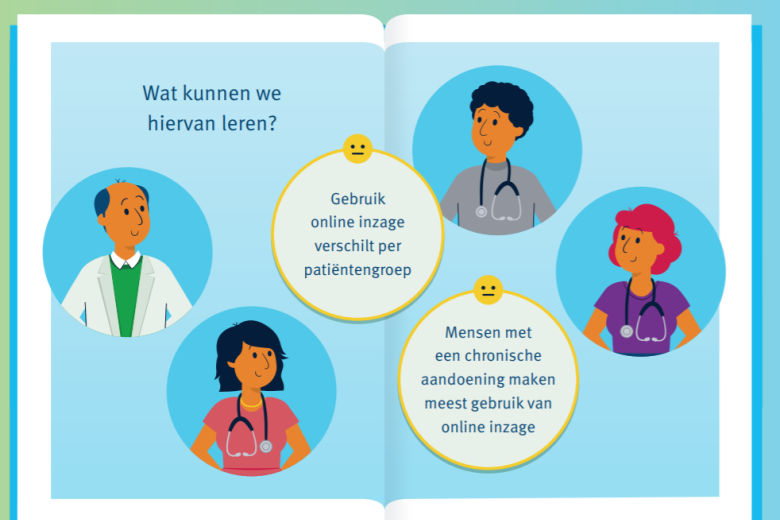Online access to medical information in primary care: the patient’s perspective
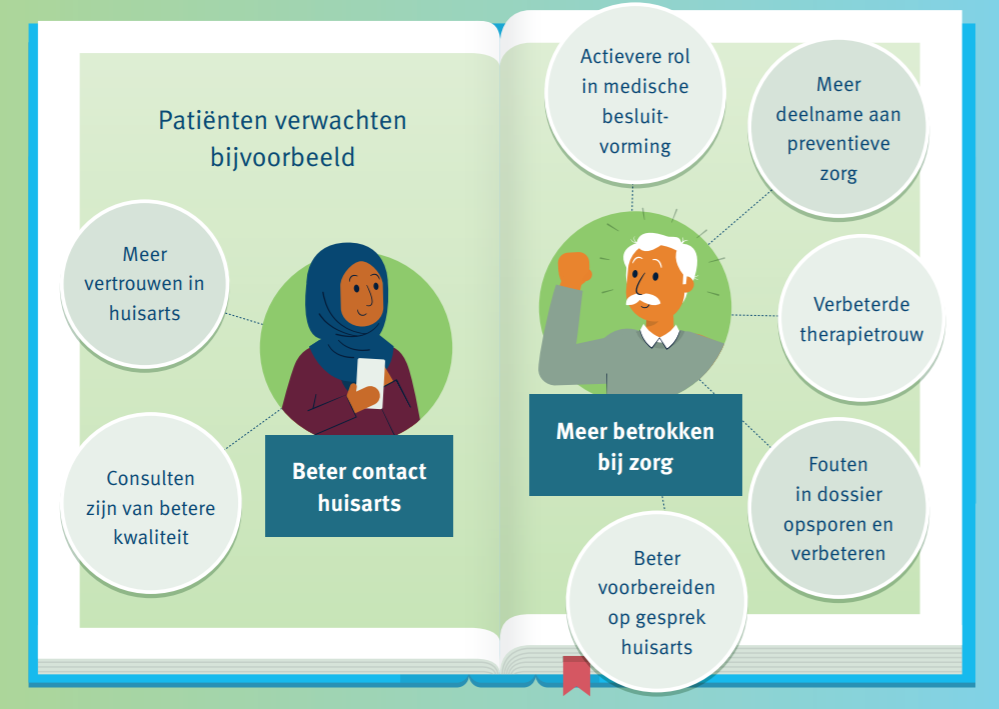
From 1 July 2020, all patients in the Netherlands have the right to access their medical information online through their primary care physician. General practices play an important role in this, as most Dutch people have a general practitioner (GP) who keeps their medical information in a file that often extends over many years. But it will be quite a task for general practices to meet the legal and social requirement to provide patients with safe and easy access to their medical information. To help GPs with this and accelerate the process, a 4-year programme called OPEN was launched by the Dutch College of General Practitioners (NHG), InEen, and the Dutch General Practitioner’s Association (LHV), supported by a grant from the Dutch Ministry of Health, Welfare and Sport.
One study, 3 subsets
The aim of the project is to ensure that at least 40% of all Dutch people will view their medical information online by the end of 2022. This percentage is currently 7%. Progress is being monitored on the OPEN website, updated weekly. “But it’s about more than just meeting targets”, says Rik Crutzen, professor of Behaviour Change and Technology at CAPHRI of Maastricht University. “It’s also important to know how online access affects patients, GPs, practice staff, and the organisation of general practices in the Netherlands”. Crutzen and his team are studying these effects together with 2 other research institutes: the Netherlands Institute for Health Services Research (Nivel) and IQ healthcare of Radboudumc. “We put our heads together to discuss the best way to approach this project”, says Crutzen. “We ended up dividing the study into 3 subsets, which we divided based on individual expertise. Nivel is focusing on the healthcare provider’s perspective and the effect of the actual use of online access on the organisation of general practice, using data from the Dutch GP Information System (HIS). IQ healthcare is studying what online access means for patients, healthcare providers, and the interaction between them. Our research focuses on the patient’s perspective. How do patients feel about having online access to their medical information? What factors encourage or discourage them to view their own file? And how does it affect them? For example, one of the goals of online access is to help patients become better informed so that they can make better-informed treatment decisions together with their doctor. Do patients feel like this is the case?”
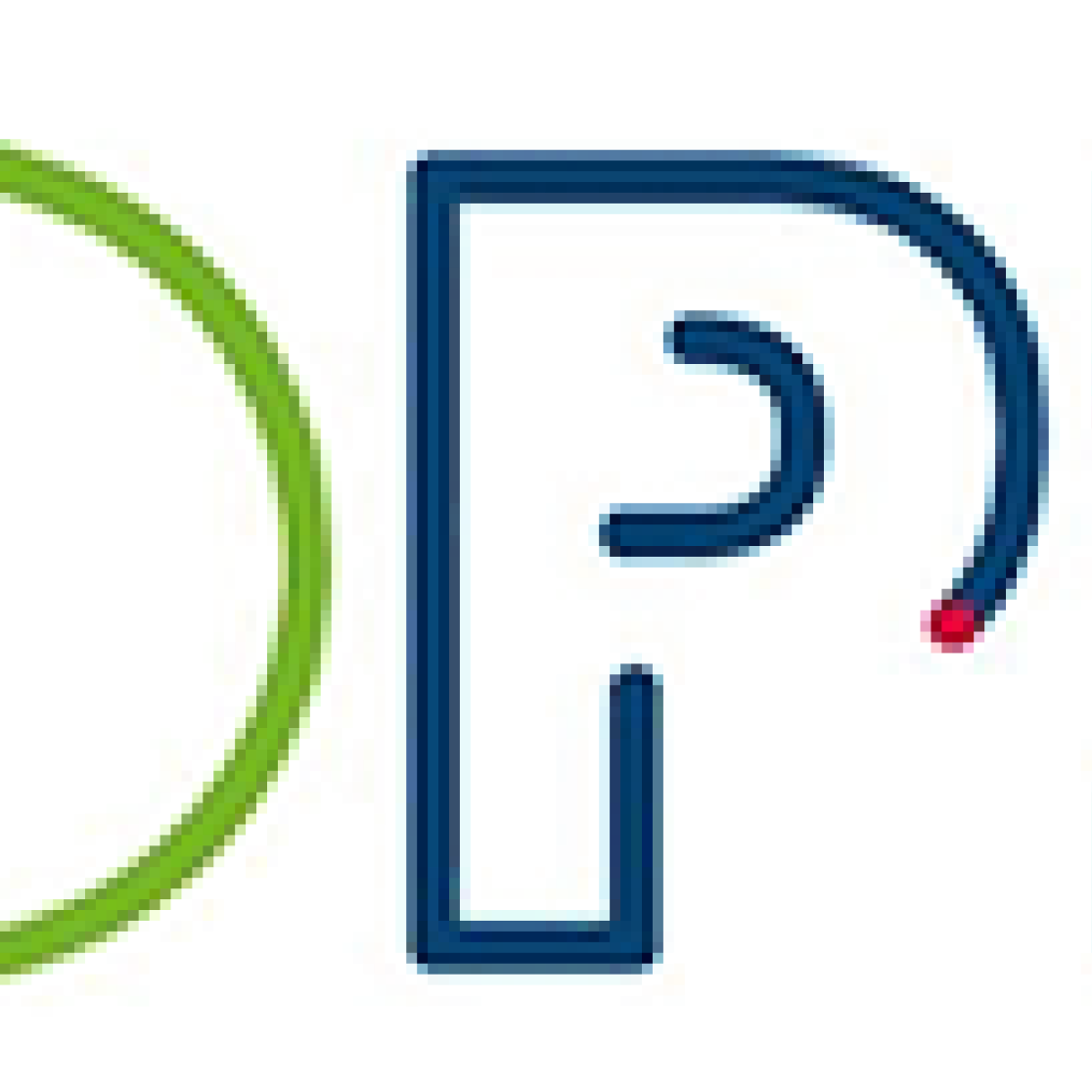
Period: 2020 - 2022
This project was granted by: VWS
Project website: www.open-eerstelijn.nl
Advantages and disadvantages from the patient’s perspective
PhD candidate Rosa Thielmann conducted in-depth interviews with many patients about their expectations of online access. “In the next phase of my study, I will follow a representative group of about 1500 people over time. I’ll observe who does and does not end up viewing their medical information online, as well as their motivations, personal characteristics and experiences. So far, I’ve observed that most patients welcome the opportunity to access their own medical information online. It actually feels quite normal to them. But there’s also scepticism. Some patients are worried that they might not understand the information in their medical files. And quite a few patients have security and privacy concerns. But they also see advantages: they can read the record of their consultation with their GP in their own time, which makes it easier for them to understand and remember what was said. It may also help them better prepare for consultations with their GP or a specialist they’ve been referred to”, says Thielmann.
Results in infographics
According to Crutzen, the study will not just result in 3 separate research reports. “Researchers from the three institutes have already been sharing knowledge and expertise. We complement each other. It’s our intention to also collaborate on publications. We worked together to create an infographic showing the results of the first part of our study. In addition to scientific publications, more infographics will follow as the study progresses. This way, our results will hopefully reach GPs. Our recommendations will also be included in GP training modules to help GPs better inform and support patients in accessing their medical files online. Ultimately, we hope that it will become normal for interested patients to access their medical information online, and that this will improve doctor-patient relationships, and consequently health outcomes”.
Text: Hanneke Trines
May 2021

Contact
Prof.dr. Rik Crutzen
rik.crutzen@maastrichtuniversity.nl
Rosa Thielmann, MSc
r.thielmann@maastrichtuniversity.nl
Our most important output for societal target groups: Infographics
This fourth and final infographic (in Dutch) provides a summary of the research that was done regarding the effects of online access to medical records in the scope of this project.
In this infographic (in Dutch) you can read the results of the sub-study with the following research questions: Do treatment plans of general practitioners and preferences of patients match? And what can we learn from the first practical experiences with online access to medical information in primary care?
In this infographic (in Dutch) you can read what is needed for optimal use of online access to medical information and how this would change the organisation of general practices?
What are the effects of online access on patients, GPs, practice staff and the organisation of GP practices?
In this infographic (in Dutch) you can read the findings of a literature study and what will be further studied in the coming period.
Involved partners
"Each of the three research institutes involved in the study has its own area of expertise and is responsible for one subset of the study. There is a lot of overlap between the three subsets and our areas of expertise, which makes it easy for us to share knowledge and support each other in the research process. We’re working very well together!"
Jelle Keuper, researcher Nivel

Research team
- Prof.dr. Rik Crutzen, Prof. of Behaviour Change & Technology, Department Health Promotion, Maastricht University
- Rosa Thielmann, MSc, PhD candidate Department Health Promotion, Maastricht University
- Prof.dr. Jochen Cals, Prof. of ffective Diagnostics in Primary Care, Department of Family Medicine, Maastricht University
- Dr. Ciska Hoving, Assistant Professor, Department Health Promotion, Maastricht University
Involved Research Lines
- Promoting Health and Personalised Care
- Optimising Patient Care
Our most important scientific output
- Thielmann, R.R.L.C., Hoving, C., Cals, J., & Crutzen, R. Relevant determinants of patients’ informed decision-making process and use of online access to their medical records in general practice. Health Information Management Journal, 2023 Jan 19.
- Thielmann, R. R. L. C., Hoving, C., Schutgens-Kok, E., Cals, J., & Crutzen, R. (2022, January 27). Patient online access to general practice medical records: A qualitative study on patients’ needs and expectations. https://doi.org/10.31234/osf.io/eq2mh [preprint]
